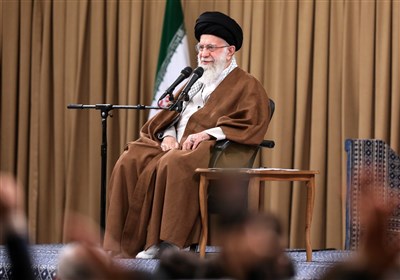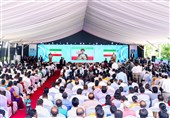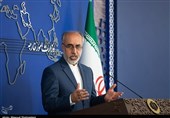Japan Moving to Label N. Power as "Important" in Energy Plan
TEHRAN (Tasnim) - A government panel tasked with drafting a long-term energy plan for Japan is moving to label nuclear power an "important" source of electricity, even as the country struggles to recover from the 2011 Fukushima nuclear crisis, a draft document obtained by Kyodo News showed Friday.
"Nuclear power should continue to be used on the condition that its safety is ensured, and it is an important and basic power source that supports the stability of Japan's energy supply and demand structure," the draft that summarized the opinions of the panel said.
The direction of the discussion is another sign that Prime Minister Shinzo Abe, who heads the Liberal Democratic Party that drove Japan's nuclear power policy prior to the nuclear crisis, is committed to retract the nuclear phase-out goal of the previous government led by the Democratic Party of Japan.
The panel is seeking to compile a so-called Basic Energy Plan that will be the first of its kind, after the 2011 Fukushima Daiichi nuclear power plant disaster put Japan's energy policy in disarray.
Economy, Trade and Industry Minister Toshimitsu Motegi told a press conference in the morning that he expects the panel to finalize a draft in mid-December to secure Cabinet approval of the content in January.
While some members of the panel have stressed the need to show a target for a future energy mix, Motegi said it is "difficult" to say at the moment how much of total electricity generation should be accounted for by nuclear power, partly because of the difficulty of foreseeing how many reactors may be allowed to restart.
But he reiterated that the government plans to set a goal of the best energy mix in three years' time and will seek to move up the schedule as much as possible.
All 50 commercial reactors in Japan are offline and are required to clear a set of safety requirements introduced in July to resume operation. Because of the tougher regulations, utilities could also be forced to shut down some reactors permanently.
In the draft, nuclear power is praised for its great stability in supplying electricity, cheap operation cost, and for not emitting greenhouse gas during operation.
It also said the government should "pursue the resumption of nuclear power plants once they are confirmed safe under the new nuclear regulations that are the world's toughest."
But the draft noted that the country's nuclear dependence should be reduced as much as possible through the introduction of renewable energy and energy conservation efforts.
Amid criticism that it is irresponsible to turn to nuclear power without finding a final disposal site for high-level radioactive waste, the draft highlighted the need for the state to play a more proactive role to resolve the stalled process.
The government is considering presenting candidate sites across the country that are perceived scientifically suitable for building disposal facilities, rather than waiting for local governments to offer to host them.
The draft also said that Japan's long-standing policy to recycle spent fuel through reprocessing should be "steadily promoted."
The government is legally required to review the Basic Energy Plan at least every three years by taking into consideration changes in the energy situation.
The previous plan compiled in 2010 aimed to boost the nation's reliance on nuclear power to some 50 percent of its energy needs in 2030 from around 30 percent before the Fukushima disaster.
In 2012, the DPJ-led government decided on what it called an "energy strategy" aiming to phase out nuclear power by the end of the 2030s, but the content stirred a controversy and the government did not go so far as revising the Basic Energy Plan that was expected to stipulate detailed measures to realize the strategy.





